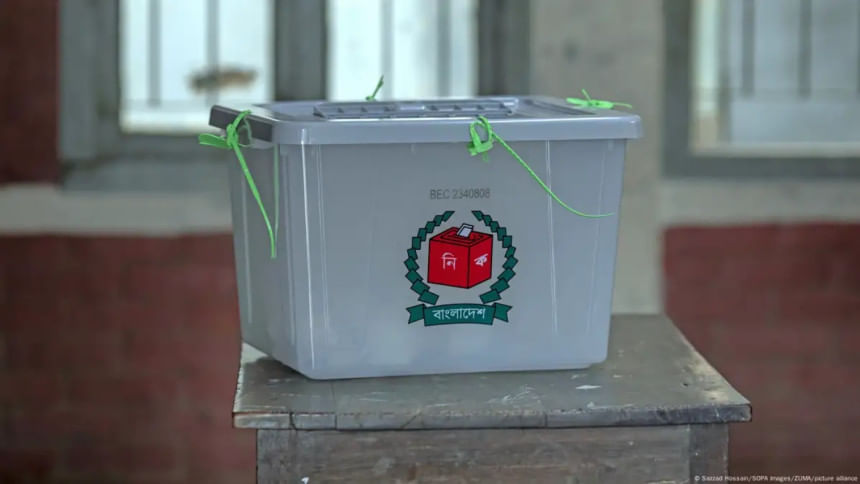‘Bangladesh will experience a just and fair election process’

As Bangladesh goes through a transition and heads for the elections by February next year, political analysts have called for a just and fair process that ensures participation of all citizens regardless of caste, creed, and gender."As Bangladesh prepares for an upcoming election under special circumstances, I sincerely hope the people of the country will experience a just and fair process," said Felix Gerdes, Resident Representative of German-based think tank Friedrich-Ebert-Stiftung (FES) Bang...
As Bangladesh goes through a transition and heads for the elections by February next year, political analysts have called for a just and fair process that ensures participation of all citizens regardless of caste, creed, and gender.
"As Bangladesh prepares for an upcoming election under special circumstances, I sincerely hope the people of the country will experience a just and fair process," said Felix Gerdes, Resident Representative of German-based think tank Friedrich-Ebert-Stiftung (FES) Bangladesh.
He was speaking at a workshop, "Inclusive Democracy" organised by the Centre for Governance Studies (CGS) in collaboration with FES Bangladesh at a city hotel today, to encourage ideological dialogue and democratic practice among young politicians.
The primary objective of the initiative is to promote ideological dialogue among young political activists and strengthen democratic coexistence and pluralism in Bangladesh, said a press statement.
Felix Gerdes said the issue of minority rights remains a crucial element of democracy worldwide, as "the tyranny of the majority is not necessarily better than the tyranny of the minority".
CGS President Zillur Rahman said an election alone does not guarantee democracy, but without elections, the democratic process cannot begin. Bangladesh is heading toward a national election, and it remains to be seen how that process unfolds.
"The question of who is marginalised in this country is a complex one. Data shows that although there are around 55 registered political parties, only 18 have signed the 'July Charter," he said.
Zillur Rahman said women make up nearly 50 percent of the population, yet their representation, along with that of other minorities, has been notably limited in this historic process. Therefore, how this consensus was reached remains a matter of reflection.
CGS Executive Director Parvez Karim Abbasi said in past electoral processes, those who came to power became immensely powerful after the elections, while those who lost would almost disappear from the scene.
"When we discuss political minorities, the issue of religious minorities naturally comes up. Economic marginalisation is also a major challenge, where the same groups continue to enjoy privileges repeatedly.
"At the same time, cultural marginalisation has become increasingly evident, often imposed through coercion and, at times, with the support of the state."
Writer and researcher Maha Mirza moderated the workshop, which was attended by representatives from various student political organisations.